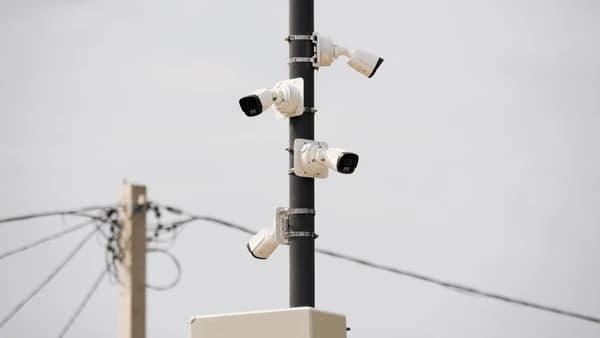We're loading the full news article for you. This includes the article content, images, author information, and related articles.
A landmark ruling by Kenya's Data Protection Commissioner underscores the growing legal consequences of violating residential privacy, setting a significant precedent for homeowners.

A Nairobi couple has been ordered to pay their neighbour KSh 200,000 in compensation for violating their privacy with improperly positioned security cameras. The ruling, delivered by the Office of the Data Protection Commissioner (ODPC) on Thursday, November 20, 2025, marks a critical moment in the balancing act between residential security and the constitutional right to privacy in Kenya. The case highlights the legal responsibilities of homeowners when installing surveillance systems.
The conflict began in mid-2021 when a couple, identified as Mr JK and Ms FW, installed CCTV cameras in their upscale Nairobi neighbourhood following a burglary attempt. However, their neighbours, Ms LN and Mr GM, soon lodged a complaint, stating that two of the cameras were aimed in a way that captured footage of their private spaces, including their kitchen and compound. For nearly four years, the complainants reported feeling a constant sense of being watched, which caused them significant emotional and psychological distress. Despite attempts to resolve the issue amicably, including involving the local chief, the intrusive surveillance continued, prompting the formal complaint to the ODPC.
In her determination, Data Commissioner Immaculate Kassait found that the couple had breached fundamental principles of the Data Protection Act (DPA) of 2019. The respondents argued that the cameras were installed for a legitimate interest—security. However, the Commissioner ruled that they failed to ensure the cameras' range did not intrude upon the neighbouring property. This failure constituted a breach of the principles of lawfulness, fairness, and data minimisation as outlined in Section 25 of the Act. "The Complainants' home is a private space, and continuous surveillance from a neighbouring property, even unintentionally, constitutes unauthorised processing of personal data," Kassait's ruling stated. The ODPC determined that by capturing images beyond their own property without consent, the couple acted as data controllers and had unlawfully processed their neighbour's personal data.
This ruling serves as a significant legal precedent for urban and suburban residents across Kenya, where the use of private CCTV systems has become widespread. It clarifies that while homeowners have a right to secure their property, this right does not extend to infringing on a neighbour's privacy. The KSh 200,000 fine sets a clear financial consequence for such violations and is intended to act as a deterrent.
The case builds on earlier High Court decisions, such as Ondieki V Maeda (2023), which also found that installing CCTV cameras in a manner that monitors a neighbour's property violates the right to privacy under Article 31 of the Constitution. Legal experts note that under the DPA, individuals processing data for purely personal or household activities may be exempt from certain principles, but this exemption does not apply when the surveillance extends into public areas or a neighbour's private property. Homeowners are now clearly obligated to position cameras carefully, potentially obtain consent if coverage overlaps, and provide clear signage indicating that surveillance is active to avoid legal challenges. The ruling reinforces the mandate of the ODPC as the primary body for handling such disputes before they are escalated to the High Court.
The increasing affordability and use of surveillance technology, from CCTV to smart doorbells, has created new challenges for data protection regulation. This decision by the ODPC signals a robust enforcement of Kenya's data protection laws in the residential sphere. It compels property owners to conduct a virtual data protection impact assessment before installation, ensuring their security measures are lawful and respect the privacy of those around them. As surveillance technology becomes more integrated into daily life, this case will likely be a cornerstone for future legal interpretations of privacy within Kenyan communities.
Keep the conversation in one place—threads here stay linked to the story and in the forums.
Sign in to start a discussion
Start a conversation about this story and keep it linked here.
Other hot threads
E-sports and Gaming Community in Kenya
Active 9 months ago
The Role of Technology in Modern Agriculture (AgriTech)
Active 9 months ago
Popular Recreational Activities Across Counties
Active 9 months ago
Investing in Youth Sports Development Programs
Active 9 months ago